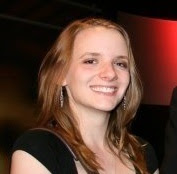Some skeptical fans of "Watchmen" deemed the complex graphic novel an unfilmable story. But "300" director Zack Snyder has created a near-masterpiece, packing a remarkable amount of the novel's material into a 2-hour-and-41-minute runtime.
The story's plot is hard to describe, but the film communicates it nicely so it is still easily digestible to viewers who aren't familiar with the graphic novel. "Watchmen" takes place in an alternate 1985, one in which the threat of nuclear war is still very real, but the work of costumed vigilantes has changed the outcome of history. Masked heroes first appear as the Minutemen in the 1940s, with a new generation of crime fighters taking over as the Watchmen in the 1960s. But in the 1970s, the public turns on these heroes and the government deems vigilantism illegal, forcing the heroes into retirement.
But the government still recognizes the power of the masked hero and uses two of them for their own purposes: The Comedian (Jeffrey Dean Morgan), a strong and aggressive man with a cynical outlook on humanity, and Dr. Manhattan (Billy Crudup), the only Watchman with actual super powers, which he obtained after a freak accident in his physics lab. Thanks to their efforts, the United States won the Vietnam War and by 1985 Richard Nixon is in his fifth term as president.
These particular plot points are seen as flashbacks, but the story's main action kicks off in 1985 when The Comedian is murdered. Rorschach (Jackie Earl Haley), the one Watchman who refuses to live without his mask, believes someone wants to kill the remaining Watchmen and calls on his former colleagues to warn them of his suspicions. Along with the looming threat of nuclear war with Russia, the increasing threats against the Watchmen's lives lead them to something far more life-altering than expected - something that could affect the fate of the entire world.
"Watchmen" is rife with action and political and social commentary, and David Hayter and Alex Tse's screenplay connects it all seamlessly. To get viewers up to speed on the complex story, they insert the history of the the Minutemen, seen in the novel as flashbacks, into a brilliant opening credits sequence.
Zack Snyder's direction is strong overall. It looks as though he has taken frames directly from the graphic novel and brought them to life. The color scheme and slow-motion action shots make for a very visually appealing film. But Snyder's music choices are very hit or miss. Some are extremely effective (Bob Dylan's "The Times They Are A'Changin'" during the opening credits, Simon and Garfunkel's "The Sounds of Silence" during The Comedian's funeral) while others don't mesh well with the content of the scene (Leonard Cohen's version of "Hallelujah" during a not-so-subtle love scene between Patrick Wilson's Nite Owl II and Malin Akerman's Silk Spectre II).
Some fans of the graphic novel have taken issue with Snyder's slightly-altered ending, but the point of the film's ending is exactly the same as the novel's. It just uses a different means, which actually plays out better onscreen than the novel's conclusion would have.
The performances are strong overall. Crudup and Wilson are solid as Dr. Manhattan and Nite Owl II, while Akerman's delivery is a bit dry at times and the American accent British actor Matthew Goode attempts to give Ozymandias fluctuates so much one can't tell where he's supposed to be from.
But the film really belongs to Morgan and Haley. Haley in particular flawlessly breathes life into Rorschach, arguably the film's most complex character. His black-and-white view of life makes him hard to relate to, but Haley makes him sympathetic all the same.
A story as dark and complex as "Watchmen" is bound to have a few flaws in its transition to the screen. Snyder faced a real challenge with this adaptation, and he has achieved a final product as strong as fans of the novel and new fans alike could hope for. A-
Are libraries obsolete? – I think not!
11 years ago

No comments:
Post a Comment